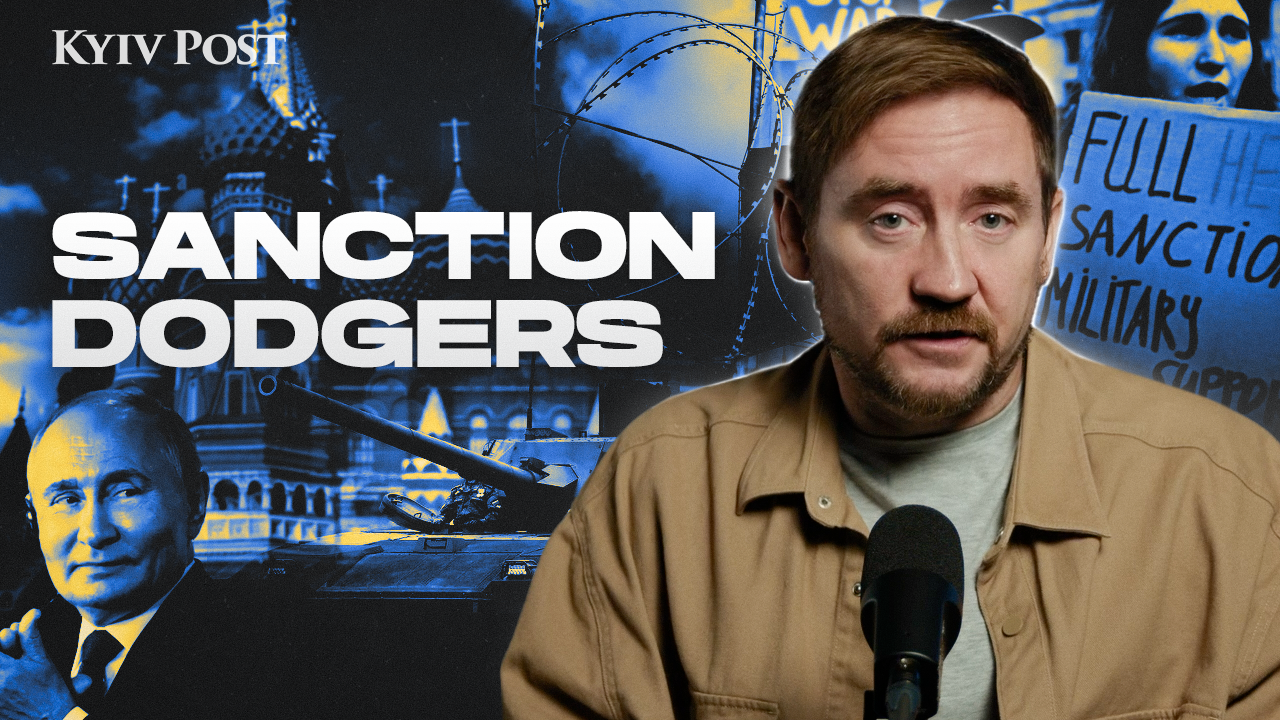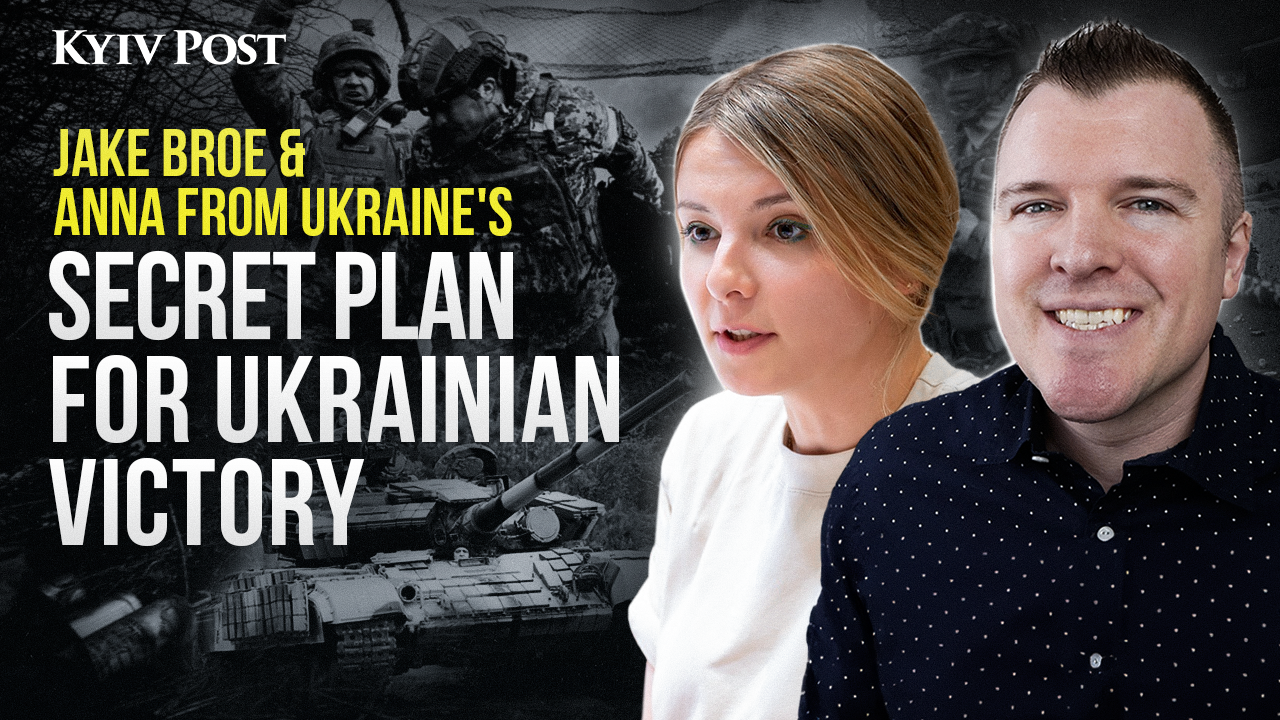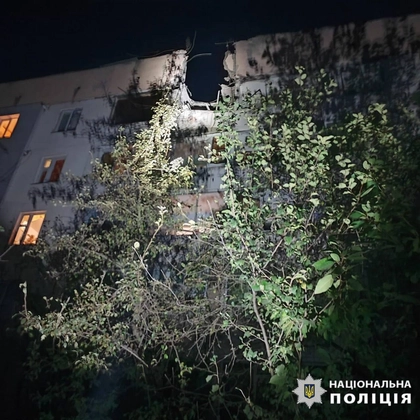The Ukrainian documentary “20 Days in Mariupol” won an award for best documentary on Feb. 18 at the British Academy Film Awards (BAFTA).
The documentary was shot during the Russian siege of Mariupol in the first weeks after Russia launched its full-scale invasion on Feb. 24, 2022. An estimated 50,000 Ukrainians died as a result of the siege, which lasted for months until May 2022.
JOIN US ON TELEGRAM
Follow our coverage of the war on the @Kyivpost_official.
The film’s director, Pulitzer Prize-winning Ukrainian journalist Mstyslav Chernov, reached Mariupol with two Associated Press colleagues the day the full-scale invasion was launched, and remained in the city for 20 days under heavy bombardment.
“We give voice to Ukrainians,” Chernov said at a post-awards presser. “We keep reminding the world about what is happening.”
21st-century siege
The feature-length documentary film, “20 Days in Mariupol,” chronicles the first three weeks of the siege from inside the city. Kyiv Post spoke with its Pulitzer Prize-winning director, Mstyslav Chernov, prior to its screening in New York at the DOC NYC film festival for documentaries in November 2023.
Mariupol, on the Sea of Azov near the Russian border, was the first major Ukrainian city to be encircled by Russian troops after the full-scale invasion on Feb. 24, 2022.
A team of Ukrainian journalists working for Associated Press traveled to Mariupol to cover events and quickly became trapped in the besieged city. For 20 days they struggled to continue their work documenting the plight of residents and the atrocities of the Russian invasion.

South Korea Demands 'Immediate Withdrawal' of North Korean Troops in Russia
As the only international reporters who remained in the city, they captured what would later become defining images of the war: dying children, mass graves, the bombing of a maternity hospital, and the pervasive fear of aerial bombardment.
“This is painful to watch, but it must be painful to watch.”
Chernov, 38, is originally from Kharkiv and has been covering conflicts since Ukraine’s Revolution of Dignity in 2014. Since then, he has reported from various wars, including the 2017 Battle of Mosul in Iraq and the Nagorno-Karabakh War in 2020.
The director is admittedly wary of journalists who claim to be activists for a cause or see themselves on a mission to serve as megaphone for righteous outrage.
“I would not dare to say that it’s a mission I’m moving towards,” Chernov says. “Because it’s not humanly possible. It has to be a collective effort.”
He prefers to see his task as a witness to history, which can only be understood by “collectively rethinking” events.
Yet the powerful film needs no megaphone to amplify its impact, it cannot help but become a spark for outrage. As a result, the journalist chronicling the victims inevitably advocates for them.
“I think our human and journalistic duty is to give our full attention to the innocent victims of these wars,” Chernov says. “This is the absolute top priority.”
Unfortunately, polarization is one of the unintended problems that often ensues from such hard-hitting chronicles.
“We live in a world where society is increasingly polarized,” Chernov says. “And as conflicts heat up around us, the more polarization we will see. Subsequently, the media and journalists react to the polarization by being polarized, becoming more activists than journalists.”
Chernov feels that’s the wrong approach: “We as journalists should not be considered as soldiers or fighters or participants in war. We have to remain impartial and try not to be seen as activists because that undermines trust. Trust in the witness is crucial. And if the journalist is witness, then the trust has to be maintained.”
A world sliding into indifference
Chernov emphasizes that one of the most insidious outcomes of “televised wars” is the indifference it nurtures – how people become numb to human tragedy.
“Billions of people are bombarded with tragedies. Part of the population removes themselves from this environment and become indifferent. It’s being taken advantage of by those people who are radicalized, to push their own agenda.”
Ultimately, watching the tragedies from a mediatic distance allows an almost dangerous form of illusory detachment. People cling to their comfort zones while believing they are informed.
A lot of common folks still believe their lives will not be impacted by war in Ukraine… and I think that is a fundamental mistake.
“The problem is that people who are becoming indifferent, they still believe they can live in the same world they used to live in. A lot of common folks still believe their lives will not be impacted by war in Ukraine or Israel or Africa… and I think that is a fundamental mistake. I think everyone will eventually be impacted by events that are unfolding right now. No one should be indifferent, and it’s our job as journalists to make sure that more people are engaged.”
Time for a collective rethinking
The film crew was the first to record the mass graves around the city in the early days, and the images sparked an outcry over the number of civilian deaths.
Since the events reported in the film, Chernov has followed up with people appearing in it and kept track of the casualty count. Today Chernov estimates about 50,000 civilians have died as a result of the war, including people who died of hunger, absence of medical care, and consequences of injuries and diseases.
Still, people dispute the obvious reality. Even in the film one of the civilians under attack in an air raid shelter argues with others that the planes bombing them must be Ukrainian (an impossibility since Russia had air superiority over the city).
Trying to preserve an accurate account of events is what gives Chernov a sense of purpose. “It’s the only way to preserve memory. We need to make documentaries. We have to make sure it’s preserved for the next generation,” he says.
On a personal level, it also helps him to process the inevitable trauma of filtering so much human pain.
“The further we go, the more tragedies we experience. To keep telling them adequately, to keep telling them fairly, we have to stay mentally healthy. There’s no way to adequately tell people’s stories if you’re not sane.”
Chernov deals with his own trauma by cultivating this sense of purpose.
“It hits hard. But having a purpose – trying to keep that story in history and making sure that people in Mariupol know their tragedy does not go unseen is helping me personally to get over this trauma.”
Ultimately the story of Mariupol under siege “is painful to watch, but it must be painful to watch.”
You can also highlight the text and press Ctrl + Enter









